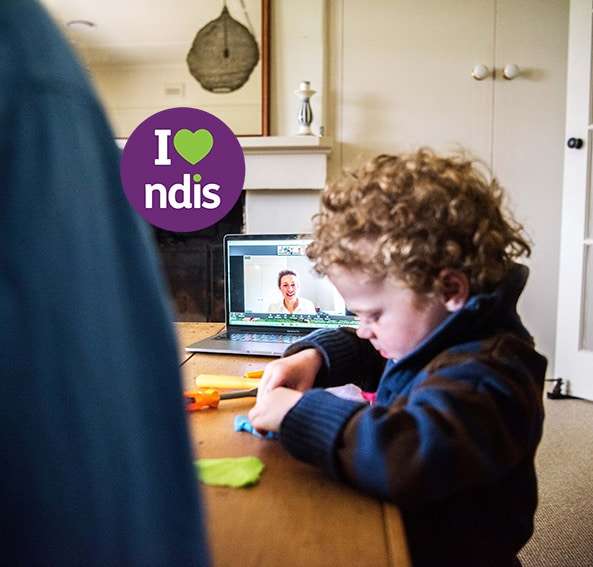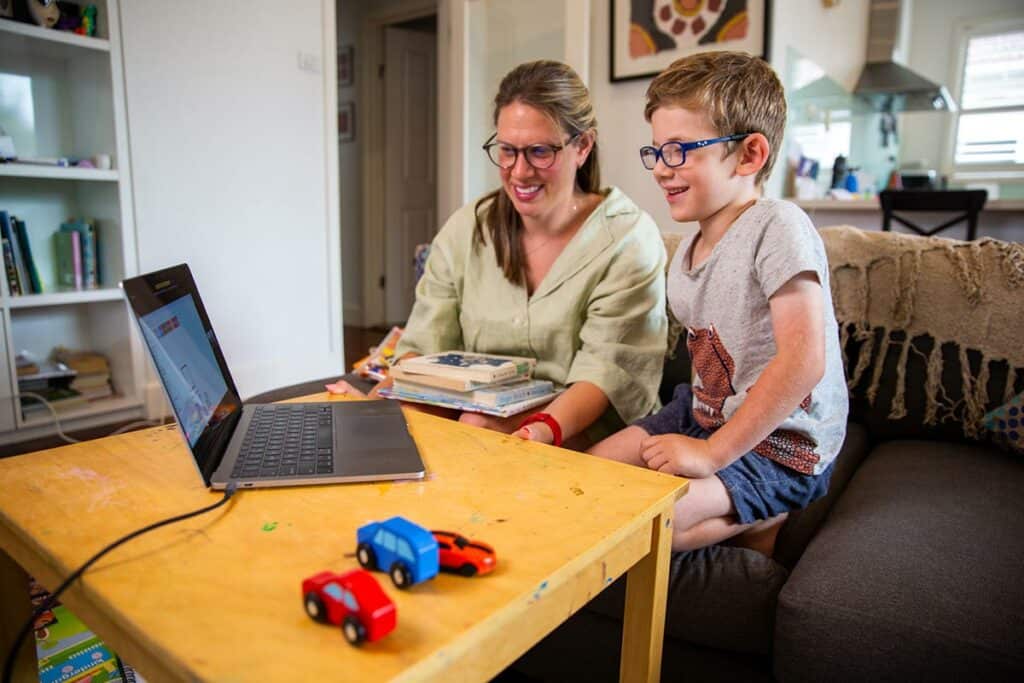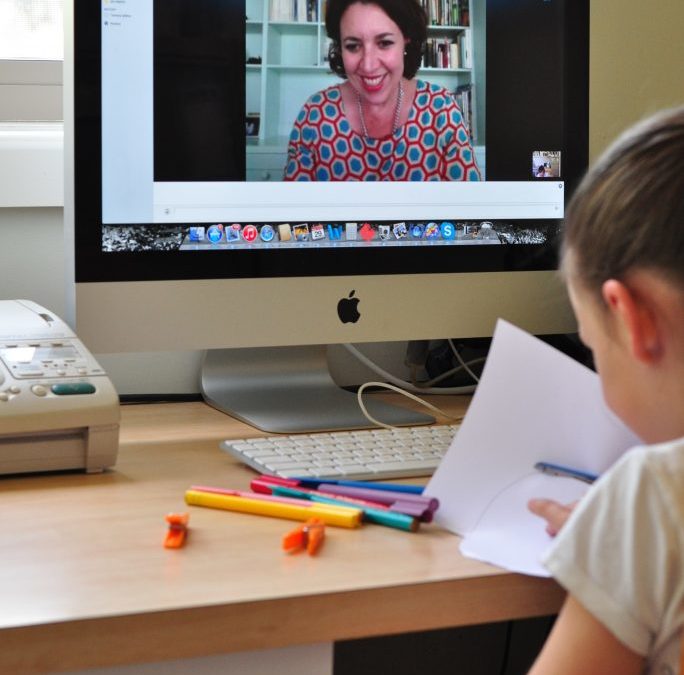Every child is unique and this extends to their speech journey. Some children may start babbling up a storm very early, while others take a more leisurely stroll towards spoken words. The purpose of this article is to support you with what to do when the stroll towards speaking is a bit slower than expected.
What is a speech delay?
Speech delay is not a one-size-fits-all term because every child is different. How we define a speech delay is when a child’s speech and language development lags behind their peers. It is important to differentiate this from a language delay, which refers to a child’s difficulty in forming phrases or sentences while they may still produce sounds correctly. In saying this, we want you to keep in mind that it’s not a race!
The Marvels of Early Language Development
Before we delve deeper into the intricacies of speech delay, let’s take a moment to marvel at the incredible journey of early language development. Understanding a child’s language development is crucial as it lays the foundation for effective communication and social interaction. From cooing and babbling to sharing their first words, a child’s linguistic development involves sounds, gestures, and expressions. Early language development is where children learn to express themselves and we get to know their unique character.

Identifying a Speech Delay
Children have different developmental timelines; however, there are some common indicators we can look at that may suggest delayed speech, which is significant in identifying whether a child’s speech and language skills are on track:
Late Onset of Babbling:
- Most babies begin to babble around 6 months. If your little one seems to be taking their time to start babbling it could be a signal worth noting.
Limited Vocabulary:
- By the age of 1, many children start uttering their first words, gradually expanding their vocabulary. If your child’s vocabulary remains limited or doesn’t show significant growth by their second birthday, it could be a sign of speech delay.
Difficulty Forming Sentences:
- As toddlers grow, so does their ability to string words together to form simple sentences. If your child finds it challenging to move beyond one-word expressions or struggles to convey thoughts coherently, speech delay might be a consideration.
Lack of Social Engagement:
- Language is not just about words; it’s a tool for social connection. A child with speech delay may exhibit difficulty engaging in conversations or responding to social cues from others.
Frustration and Behavioural Changes:
- Imagine having a world of thoughts and feelings but struggling to express them. For a child experiencing speech delay, this frustration might manifest in behavioural changes, such as physically acting out, withdrawal, or heightened emotional responses.
Causes of Speech Delays
There are many factors that contribute to speech delays and it’s important to remember that every child’s development comes together in different ways. A speech delay indicates slower-than-typical speech development, whereas a speech disorder occurs when a child’s speech development deviates from the expected path, resulting in unusual or inconsistent speech errors. Speech disorders, such as dyspraxia and dysarthria, represent significant deviations from the standard developmental path and may require extensive therapy for remediation. Some common factors include:
Genetic Factors:
- In some cases, speech delay may have a genetic component, where a family history of language difficulties plays a role.
Ear Health:
- Imagine trying to learn a language with the volume turned down. Chronic ear infections can significantly impact a child’s ability to acquire language, leading to delays in speech and communication.
Speech Sound Disorders:
- Sometimes, the challenge lies in the mechanics of speech itself. Speech sound disorders can impede a child’s ability to produce words clearly.
Environment:
- The environment in which a child grows plays a crucial role. Less exposure to language-rich experiences, such as reading books, engaging in conversations, and interactive play, can contribute to speech delay.
Diagnosing Speech Delays
Diagnosing speech delays in children is a crucial step in providing timely intervention and support. A speech-language pathologist (SLP) is a professional trained to assess and diagnose speech and language disorders in children. Here are the steps involved in diagnosing speech delays:
- Initial Consultation: The journey begins with an initial consultation, where the SLP meets with the child and their parents to discuss any concerns about the child’s speech and language development. This is a safe space for parents to share their observations and worries.
- Developmental History: The SLP will delve into the child’s developmental history, asking questions about their birth, medical history, and language development milestones. This helps in understanding the broader context of the child’s growth.
- Speech and Language Assessment: A comprehensive assessment of the child’s speech and language skills is conducted. This includes evaluating articulation, phonology, vocabulary, grammar, and overall communication skills. The goal is to get a detailed picture of the child’s abilities.
- Standardised Tests: To gain further insights, the SLP may use standardised tests such as the Peabody Picture Vocabulary Test or the Clinical Evaluation of Language Fundamentals. These tests provide objective data on the child’s language skills.
- Observation: Observing the child in different settings, such as during play or conversation, allows the SLP to see how they use language in natural contexts. This can reveal important aspects of their communication style and challenges.
- Parent Report: Parents are invaluable sources of information. The SLP will ask them to report on their child’s communication skills and any specific concerns they have noticed. This collaborative approach ensures a holistic understanding of the child’s needs.
- Diagnosis: Based on the results of the assessment, the SLP will diagnose the child with a speech delay or disorder, if present. This diagnosis is the first step towards creating a tailored intervention plan to support the child’s language development.
The Importance of Early Intervention
Just as a gardener tends to a delicate seedling, early intervention is the nurturing touch that can make a world of difference in a child’s linguistic journey. Actively supporting a child’s speech development is crucial, as it lays the foundation for effective communication skills. Recognising the signs of speech delay and taking proactive steps can pave the way for a brighter, more expressive future.
Speech Therapy:
- Speech Pathologists are dedicated professionals working to unlock the linguistic potential within each child. Through playful activities, interactive games, and targeted exercises, speech pathologists help children strengthen their communication skills.
Parental and Caregiver Involvement:
- Parents and caregivers are the most influential teachers in a child’s life. Embracing the role of language facilitators, parents and caregivers can engage in activities that promote speech and language development, turning everyday moments into opportunities for learning and connection. Online therapy makes it easier than ever for parents and caregivers to be involved in this process.
Multidisciplinary Approach:
- Overcoming speech delays is a collaborative effort. A multidisciplinary approach involving speech pathologists, educators, and other allied health and medical professionals ensures a holistic understanding of a child’s unique needs.
Creating Language-Rich Environments:
- Creating a language-rich environment at home and in educational settings involves immersing a child in a sea of words, stories, and conversations that ignite their curiosity and fuel their linguistic growth.
At-Home Exercises and Activities to Support Child’s Speech
Parents play a vital role in supporting their child’s speech development. Here are some at-home exercises and activities to support your child’s speech:
- Talk, Talk, Talk: Engage in regular conversations with your child, even if they don’t seem to be paying attention. Describe your actions, point out objects and animals, and use different tones of voice to convey emotions. This constant exposure to language helps build their vocabulary and understanding.
- Read Together: Reading books with your child is a wonderful way to encourage language development. Choose books with simple, colourful pictures and engaging stories. Make reading a daily habit, and let your child turn the pages and point to pictures.
- Sing Songs and Recite Nursery Rhymes: Singing songs and reciting nursery rhymes expose your child to rhythm, rhyme, and phonological awareness. These fun activities can significantly boost their language skills and make learning enjoyable.
- Use Real Objects: Demonstrate the meaning of words using real objects. For example, if you’re teaching the word “ball,” show your child a real ball. This concrete association helps them understand and remember new words.
- Imitation Games: Play imitation games with your child, such as repeating words or phrases. This encourages language development and builds vocabulary. Make it a fun and interactive experience to keep them engaged.
- Labelling Objects: Label objects and actions in your child’s environment. For example, say “This is a chair,” or “We’re going for a walk.” Consistently naming things helps your child make connections between words and their meanings.
- Encourage Communication: Encourage your child to communicate by asking open-ended questions, such as “What’s that?” or “What do you want?” This prompts them to use their words and express themselves, fostering their speech development.
Working with a Speech-Language Pathologist
Working with a speech-language pathologist (SLP) is an essential part of supporting a child’s speech development. Here are some ways an SLP can help:
- Assessment and Diagnosis: An SLP can assess and diagnose speech and language disorders in children. This professional evaluation is the foundation for understanding your child’s specific needs and challenges.
- Developing a Treatment Plan: Based on the assessment, the SLP will develop a treatment plan tailored to your child’s unique needs and goals. This plan outlines the strategies and activities that will be used to support their speech and language development.
- Therapy Sessions: The SLP will conduct therapy sessions with your child to target specific speech and language skills, such as articulation, vocabulary, or grammar. These sessions are designed to be engaging and effective, helping your child make steady progress.
- Parent Education: An SLP will educate parents on how to support their child’s speech development at home. This includes providing strategies and activities that can be easily integrated into daily routines, empowering parents to be active participants in their child’s language journey.
- Progress Monitoring: The SLP will monitor your child’s progress and adjust the treatment plan as needed. Regular assessments ensure that the intervention remains effective and responsive to your child’s evolving needs.
- Collaboration with Other Professionals: An SLP may collaborate with other professionals, such as occupational therapists or psychologists, to provide comprehensive support for your child. This multidisciplinary approach ensures that all aspects of your child’s development are addressed.
By working with an SLP and following these at-home exercises and activities, parents can provide their child with the support they need to overcome speech delays and develop strong communication skills.
Unlocking Potential with Therapy Connect
Therapy Connect harnesses the power of technology to bring highly experienced speech pathologists into your home. We offer online speech therapy sessions tailored to your child’s unique needs and goals. These sessions are not only effective but also convenient, eliminating the need for stressful commutes and allowing your child to engage in therapy in a familiar and comfortable environment.
The Therapy Connect Difference
What sets Therapy Connect apart from traditional speech therapy services? Let’s explore the unique features that make this platform a game-changer for families dealing with speech delay. Expressive language is a critical aspect of speech therapy, as it helps therapists evaluate a child’s ability to communicate verbally and identify any developmental delays.
Personalised Care: Therapy Connect understands that each child is unique, and so are their needs. The online platform ensures that therapy sessions are customised to address specific challenges and promote individualised progress.
Convenience Redefined: Say goodbye to the hassles of scheduling and commuting. Therapy Connect brings therapy sessions to your living room, making it easier for both parents, caregivers and children to stay consistent with the intervention plan.
Expertise at Your Fingertips: Access to experienced and highly qualified speech therapists means your child receives top-notch care. Therapy Connect’s team of professionals is dedicated to guiding your child through their speech and language development journey.
Get started
Visit Therapy Connect today to get started with an assessment and be matched to a speech pathologist to support your needs. We are an NDIS registered provider and speech pathology services are fully covered by NDIS plans.




